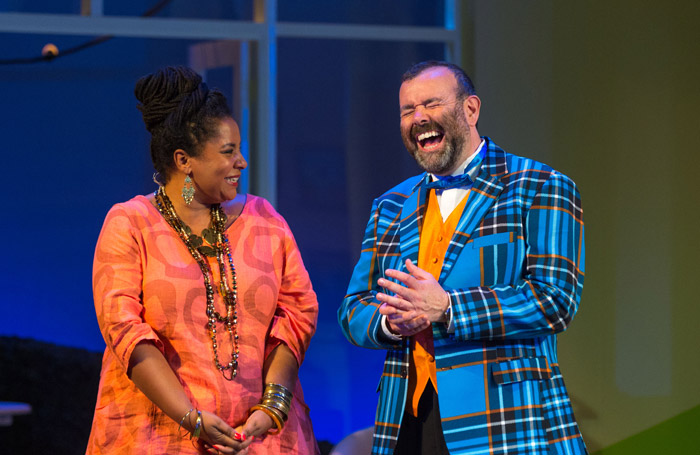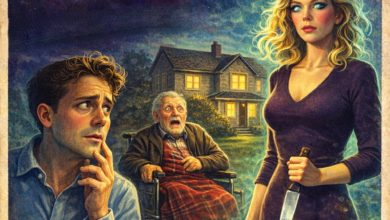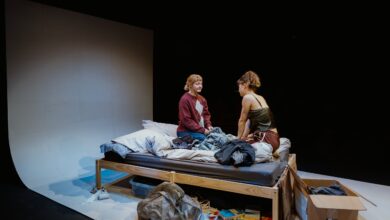A Fox on the Fairway, The Queen’s Theatre Hornchurch – Review
Pros: Lovely theatre, actors give their all.
Cons: Almost devoid of humour. Pretty set, actors give it all they’ve got, but limp writing and absence of humour means this is one farce that never truly makes an entrance.
summary
Rating
Ken Ludwig is an award winning American writer best known for Lend Me A Tenor. With 24 plays and musicals, six Broadway productions and seven in London’s West End under his belt, I was expecting tremendous things from his latest offering at The Queen’s Theatre Hornchurch, A Fox on the Fairway. Sadly, the laughs were lacking.
Quail Valley Golf Club’s president Henry Bingham (Damien Matthews) bets a stack of cash, as well as his wife’s beloved antique shop, against his brightly jumpered enemy Dickie Bird (Simon Lloyd) winning the annual golf tournament. Henry’s newly hired assistant Justin’s (Romayne Andrews) skills make him a shoe-in to send Bird flying. But when Justin’s fiancée Louise (Ottilie Mackintosh) loses his Grandma’s wedding ring then threatens to leave him, Justin’s confidence makes a sharp exit, and his win doesn’t seem so certain.
Ludwig’s Fox proved disappointing, and to me, all the problems lay in the writing. The various crises the characters came up against did not emerge organically and inevitably from the plot, neither did the stakes rise as the play progressed. The stakes were set in the beginning and didn’t really change, consequently, emotions didn’t rise. The prospect of Henry losing his wife Muriel’s (Sarah Quist) shop and potentially his marriage wasn’t too much of a worry, given that he was carrying on with Quail Valley’s multi-married vice president Pamela (Natalie Walter) and apparently couldn’t give two hoots if Muriel lost her shop; he didn’t want to stay with her anyway so why would he care? And why then should we?
All the players played hard; Colin Falconer’s set had all the pastel shades, booze and comfy armchairs expected of an attractive high-end golf club; all separate elements of the play were fine.
But the joy and hilarity of farce lies in the inevitability of the increasingly fantastic circumstances as well as the rising stakes. A farce requires complex construction, impeccable timing, and a few bucket loads of tension. And great jokes. Simply going in and out of doors does not a farce make. And to have a character running around in a hospital gown turn out to be wearing pants when he turns around, well, that just felt like a missed opportunity. Who doesn’t find the sudden revelation of a man’s bare butt cheeks funny?
Big shout out to The Queen’s Theatre Hornchurch, though; a lovely theatre with warm and welcoming staff, a lively atmosphere and definitely worth a visit. Just not for this.
Author: Ken Ludwig
Director: Philip Wilson
Box Office: 01708 443 333
Booking Link: http://www.queens-theatre.co.uk/whats-on/show/a-fox-on-the-fairway/
Booking until: 16th September 2017






